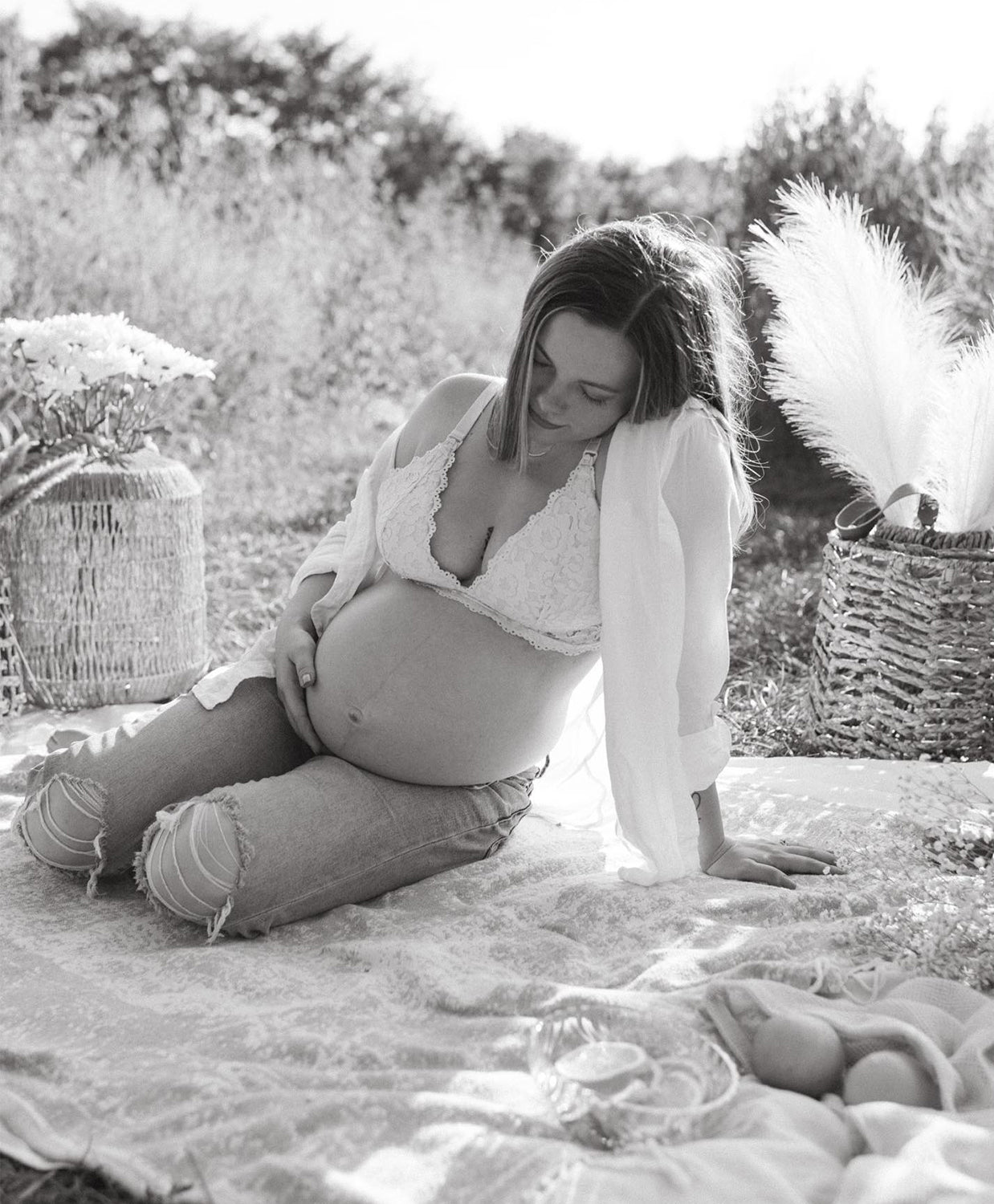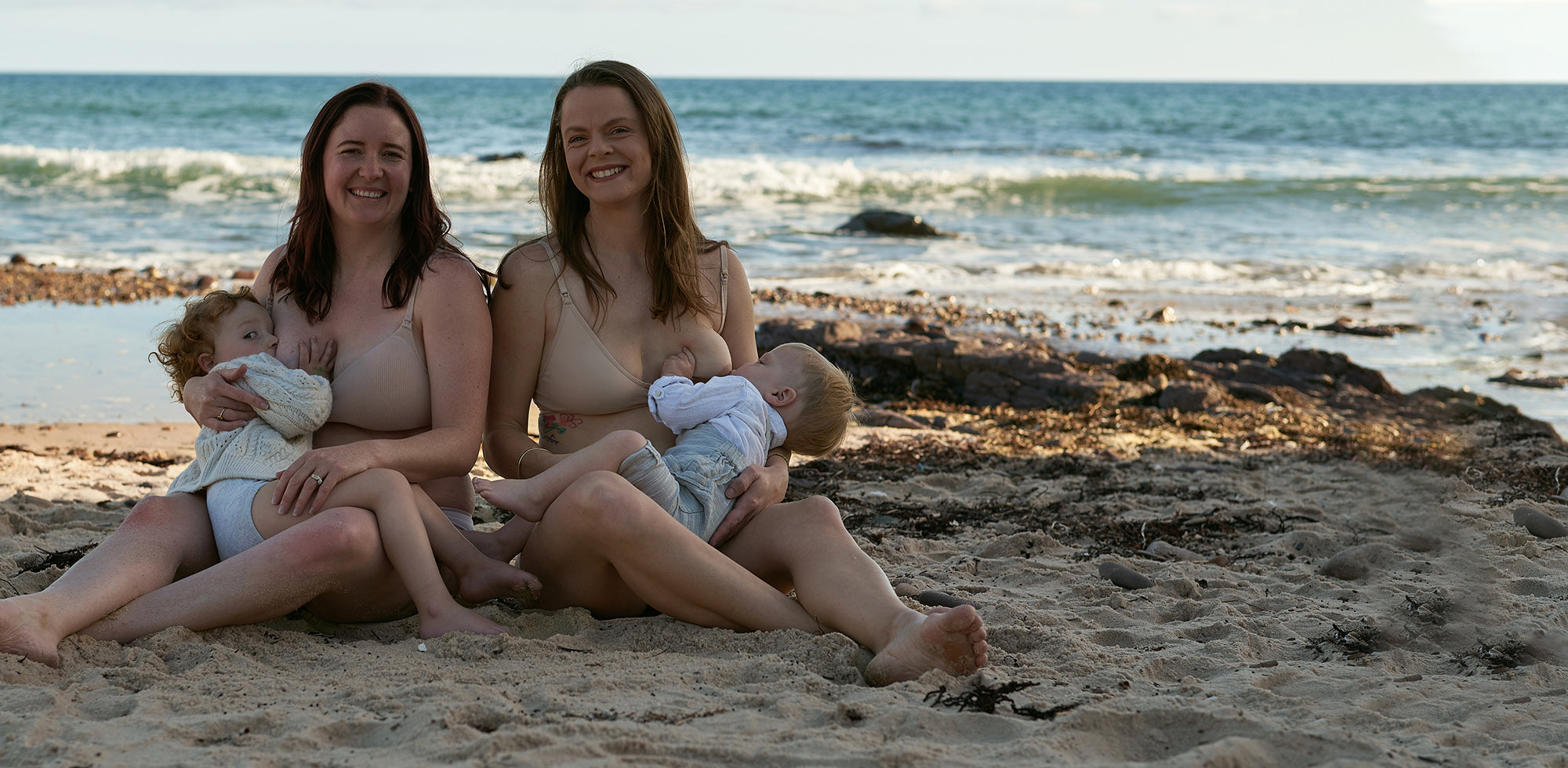When should I stop breastfeeding?

Deciding how long you want to breastfeed your child is one of those deeply personal decisions that you can only make yourself. Every mom is different, and you alone know what is best for your little angel. That’s why it shouldn’t come as a surprise that the decision about when to stop breastfeeding might even vary from one child to another.
Some women just know exactly how long they want to breastfeed and when to stop. If you fall into this category, that’s great! More power to you. However, for many women, the decision is not as simple and straightforward as it could be.
Many things may come into play, including your own feelings, your child's needs and feelings, and the opinions of others (which may or may not be welcomed!)
What is the right age to stop breastfeeding?
Perhaps the question here should be “Is there a right age to stop breastfeeding?”
Whatever you do, always remember that the decision to breastfeed and for how long to do it is ultimately yours. It is your body, your child, and your decision, so don’t let anyone pressure you into doing something you are not comfortable with.
This is to say that there is no such thing as a “right age” to stop breastfeeding. While there is no one-size-fits-all solution, breastfeeding for as long as you choose is advantageous to both you and your baby. These benefits have no age limit, and there is no harm in breastfeeding for, say, a year or longer.
Side note; as long as you keep breastfeeding your baby, be sure to keep using your nursing bra. The right nursing bra will not only be comfortable for both you and your child as you breastfeed, but it’ll also look great on you!
What do the experts say?
Breastfeeding for at least a year is recommended by all major health organizations, with around 6 months of exclusive breastfeeding that’s followed by breastfeeding combined with the introduction of solid foods.
After that first year, the advice on how long to continue breastfeeding differs. Here are a few examples.
- The AAP (American Academy of Pediatrics) and the CDC (Center for Disease Control) both recommend breastfeeding for at least 1 year. After that, the AAP recommends continuing as long as “mutually desired by mother and infant.” The CDC does not state how long you should continue doing it after the first year.
- The WHO (World Health Organization) and the AAFP (American Academy of Family Physicians) both recommend breastfeeding for 2 or more years. WHO recommends breastfeeding exclusively for 6 months followed by more breastfeeding for up to 2 years as you introduce solids. AAFP recommends that moms should breastfeed for a minimum of 2 years for optimal mom and baby health.
The nutritional value of breast milk
Over the first 6 months of a baby’s life, breast milk plays a vital role in keeping them healthy by protecting your little one against diseases and infections. It is easy to digest, which means fewer cases of constipation, diarrhea, and upset stomach than you’d get in a formula-fed baby. Plus, it is also the primary source of all the essential nutrients that the baby needs to grow, nourishing them while ensuring that they maintain a healthy weight as they grow.
How about after a year? Does breast milk remain as nutritious? And what happens to your milk supply?
Well, breastmilk does not "turn to water" or lose its nutritional value at any point or after a certain duration as a lot of people think. Several studies have shown that the nutritional value of breastmilk will remain almost unchanged throughout the second year of breastfeeding. It’s only the protein and salt content that will increase while calcium and iron content decreases.
Furthermore, for however long you choose to breastfeed your little one, breastmilk will contain antibodies that help strengthen your child's immune system.
What is the average weaning age?
It's difficult to determine an accurate average weaning age because weaning is a process.
If you decide to breastfeed your child through their toddler years, that’s perfectly fine to do. According to the AAFP, the natural age of self-weaning (meaning weaning determined solely by your child) is between 2-5 to 7 years based on anthropological data.
While you may not be willing to nurse your child till they are 7 years old, it is nice to know that certain societies around the world actually do let their children naturally wean themselves and continue nursing them for all those years.
This practice is called “natural term breastfeeding” and it is something you can look into if you are interested.
When should you wean your child?
Most experts agree that weaning should start as soon as your little one starts eating solid food. It is a gradual process that should not be done abruptly, so even if it takes several months or years, that’s perfectly fine. This will give your body and your baby time to adjust to the new feeding system.
If you start weaning your child at about the 6-month mark, you are going to need to supplement the feedings with formula. Do this until your child is about 12 months old because, for the first 1 year of a child’s life, their primary food needs to be breast milk or formula. Do not completely swap them out for solids until your child turns 1-year old.
Depending on your baby's age and the conditions or circumstances that you're dealing with, weaning your baby is going to be a unique experience. Here are a few weaning scenarios and a few things to remember in each one:
Weaning before the age of six months
If your baby is under the age of six months, substitute breastfeeding sessions with formula. You also want to make sure your baby gets used to the bottle as you gradually reduce how often they get to breastfeed. A great way to do this is to simply have another caregiver give them the bottle.
Then, as your baby's time at the breast decreases, gradually increase the number of bottles you feed them. If possible, do this gradually to evaluate how well your baby digests the formula. If the formula appears to upset your baby’s stomach, consult your doctor for recommendations.
When starting out, switch to a bottle for a single feeding, wait a few days, and then add another bottle feeding to the schedule. You can always slow down or speed up as needed to keep your baby fed and adjusting to the changes. Gradually transition to exclusively bottle-feeding over the course of a few weeks or months.
Weaning after the age of 6 months
After 6 months, you may be ready to substitute solid foods for a few breastfeeding sessions. However, because babies don't eat a wide variety of solid meals, you won't be able to provide your little one a balanced diet solely through solid foods just yet.
Consider substituting your breastfeeding sessions with formula as you reduce them. You can even add the formula to your little one’s food for that extra nutritional boost and just to give them something tasty and familiar with their solids.
Just keep in mind that breastmilk or formula is still their main source of calories for the first year, so make sure you're offering them enough formula every day in a cup or bottle.
Weaning after the age of 1 year
Once your baby starts to eat a wider variety of foods and drinking water or milk, you should be able to reduce their breastfeeding sessions without having to substitute with formula. If you have any doubts, discuss this with your doctor.
In either case, many babies will be acutely aware of their emotional ties to breastfeeding by this age. Therefore, weaning at this age may involve offering your baby alternative sources of comfort such as toys or blankies as you reduce their time at the breast. Distracting them with their favorite song or a funny show can also be helpful.
Sudden weaning
Weaning abruptly isn't recommended for various reasons. It might lead to engorgement of the breasts and may also put you at higher risk of certain breast infections. It may also be more emotionally difficult for your child — and for you.
However, sometimes, abrupt weaning may be necessary. Examples of circumstances where sudden weaning may be necessary include getting called to military duty, needing to start using certain medications, as a result of the requirements of certain health procedures that may not be compatible with nursing, among others.
In these situations, you should consider your child's age and substitute using age-appropriate foods or formula. If you are experiencing engorgement, try using cold compresses or cold cabbage leaves to reduce the swelling. You may also need to express just enough milk for a few days to relieve the engorgement. Just don't express too much or you'll continue to produce breast milk in excess.
You should also treat yourself and your child to some extra tender loving care. Sudden weaning can be emotionally draining for both you and your child. Plus, you’ll also experience sudden hormonal shifts as a result.
Self-weaning
Self-weaning is pretty much exactly what it sounds like. You let your child wean on their own terms and at their own pace.
When it comes to when they want to stop nursing, every child is different. Some babies give up nursing quickly or abruptly, preferring to play or snuggle instead. Others appear to have a stronger emotional attachment to nursing and require a lot longer to self-wean.
Every child is different, so there is no such thing as "normal" here. You should also keep in mind that self-weaning is not an all-or-nothing proposition. You can let your child wean on their own while still setting your own limits for how often or how long you want to nurse. Over time, weaning may become more of a discussion based on a reciprocal bond as your child grows older.
Final Thoughts
As you can see, when you choose to stop breastfeeding is a very personal decision that you should make on your own.
Sadly, it is not uncommon to feel pressured by others to make a decision that you don't believe is appropriate for you; from your friends to your family to your doctor or even your partner. When this happens, trust your gut. Mama knows best, and your gut instinct will usually tell you what is best for you and your little one.
At the end of the day, whatever you decide, it will be the best decision for both of you. Your little one will be just fine, so don’t worry about that. Whether you breastfeed for a month, a year, or for 5 years, you can always rest easy knowing that every drop of milk you gave your child was beneficial - and that you're a fantastic mom. Good luck!
Breastfeeding FAQ: Everything You Need to Know
Top 10 Struggles And Solutions For Breastfeeding Moms
Benefits of Breastfeeding
Breastfeeding Timeline
Breastfeeding Care Instructions For New Moms
SUBCRIBE FOR NEWSLETTER
Shop today with 5% OFF your first order of all products storewide



















